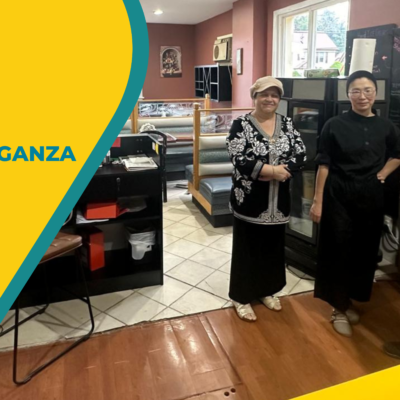“Children begin by loving their parents; after a time, they judge them; rarely, if ever, do they forgive them.” ~ Oscar Wilde
Have you been holding onto childhood pain? Do you harbor deep-seated resentment for the way your parents raised you? Do you blame them for the circumstances of your life today?
Obviously, not everyone has been blessed with a happy home with patient, loving, attentive parents.
If you are one of the oh-so-many who harbor pent-up feelings toward mom or dad and those pent-up feelings affect you today, you are not alone. Nor are you condemned to a life plagued by the energy-sapping, happiness-stunting emotions of deep-seated anger and resentment.
It’s time to let go and move on! And not because your parents necessarily deserve it, they may not! At all. But YOU do! You deserve to be free of such emotional poison. It’s time to let it go.

Following, are specific steps you can take to unpack the baggage of blame and anger and resentment and, perhaps, begin to establish a new kind of relationship with your parents, or at least be able to let the past be buried in the past so that you can begin moving forward untethered to the pull of yesterday.
1. Redefine Your Relationship
Allow people to evolve and change. And remind yourself that parents are people too. Some parents were horrible at parenting but not so bad as friends to their adult children. So be it. Let that be the redefinition of your relationship. Try not to judge the current reality against the context of the past. Instead, try to accept things as they are today.
2. Be Grateful for the Blueprint of What NOT to do Raising Your Kids
We don’t come with owner’s manuals. And yet, we are far more complex than any piece of furniture or computer program we have ever had to put together or install.
We are also all too familiar with the problems that can arise with do-it-yourself projects. Pieces don’t fit. Installations fail. It’s at those moments we are glad there are trouble-shooting instructions or FAQ pages provided.
Well, guess what! Your parents’ mistakes are now effectively your troubleshooting guide and FAQ page. “What happens if I scream and shout at my kids?” you might want to know. “Oh yeah, my parents did that to me. I know exactly what happens!”
3. Forgive Them for Being the Only Thing They Knew How to Be

Impatient, unkind and punitive parents aren’t impatient, unkind and punitive simply because you were unworthy of their patience, kindness or compassion. They were that way because they are impatient, unkind and punitive people. In other words, how you were treated is all about them, not you.
So, here’s the point I’m trying to make: All our parenting is done out of the context of who we are and what we know. Each one of us is limited in giving love by the limits of our capacity to love. Your parents were likewise limited. That understanding can lead to compassion which can lead to forgiveness.
4. Recognize They are Likely Products of Their Own Parents’ Mistakes and Flaws
We reap what we sow. And we also “reap” the traits that our parents “sowed” as they raised us. We are products of both parental successes and mistakes.
And while we can always learn and grow, most people seem to live on automatic pilot. So, most of us are something within a stone’s throw of our parents’ behaviors, attitudes and habits. Likewise, mom and dad are products of their parent’s parenting too. Forgive them of that.
5. Write it Down
Sometimes we bury our feelings where they fester and decay and then begin to infect other parts of the psyche as well.
Sometimes, like the body expelling poisons, the soul also needs to vomit emotional toxins. Doing this on paper helps sort out feelings and make sense of things. There can be a cleansing quality to putting pain to paper too. Be as explicit and detailed as you can. Dump everything onto the page. It may take several days to get it all out. That’s okay; take the time.
When you’re done, read it as a solemn recognition of the past. Then light the thing on fire and burn it. Let its ashes float away on the wind or up the vent. As the smoke lifts, feel the emotional baggage float away with it. Feel it rise with the ashes and smoke and disappear and be gone.
And then be done with it. I would suggest this be a one-time expulsion of pent-up emotional poison. Doing this repeatedly can have the unhappy effect of amplifying, rather than muting, the past’s continuing influence as you keep swimming in that polluted pool.
6. Learn from Parental Strengths and Weaknesses

Your parents were not just your parents. They, like all of us, are complex beings with a mixed bag of character strengths and flaws. Perhaps you ended up on the receiving end of their flaws. But they are not likely without redeeming qualities as well. See that in them. And commit to learning from both their strengths and weaknesses. And be grateful for the life lessons learned.
7. Read the Book, A Child Called It, Then be Grateful
If you’ve read this autobiographical work by Dave Pelzer, you likely know your parents may not have been all that bad after all. Be thankful they at least had something going for them.
This idea is something reminiscent of the principle so powerfully reflected in the Persian proverb: “I wept because I had no shoes until I met a man who had no feet.” So too, we weep for having flawed parents until we read books like A Child Called It and see that at least ours had some “feet.”
8. Let the Work You do in Your Own Home be the Salve that Heals the Wounds in Your Heart
If you grew up without love, smother your children with it. If you grew up with family secrets, don’t have any. If you grew up with harsh criticism and ridicule and impatience, then be sure to compliment, love, and exercise patience with your children.
Let the example of decency and compassion you share with them be the focus of your emotional healing. But be sure not to commit the sin of overcompensation. Your role here is to love, not spoil.
In a sense, you will be parenting yourself with the love and compassion you wish your parents had shown you as you shower it on your own kids, in some way, making amends for what your parents failed to provide.
In other words, parent yourself vicariously through parenting your own children. Extend to them what your parents failed to extend to you and allow the love flowing from you to your children to heal the wounds from the lack of love flowing to you as a child.
9. Take Responsibility for Your Life
This can be a hard pill to swallow. Still, it’s important to stop blaming your parents for current problems. Did they lay the foundation for the problem? Perhaps. But it’s yours now. That’s the inescapable bottom line of it.
You make the decision every day to hold on or let go. That’s your decision only. Accept that as fact. Own it completely and release your parents from the responsibility you’ve pinned to their shoulders for too long.
Don’t get me wrong, here. I am not suggesting your past is your fault. I’m saying that your present is the result of your choices, as you have allowed your past to influence them.
This step is admittedly difficult, but it is empowering and liberating once it’s fully accepted and internalized.
I am who I choose to be. I feel what I choose to feel by choosing what thoughts I harbor and how I think about things. I choose to learn ways to change my thinking and interpretations of life or I choose not to. These are all my choices. And they are yours too.
One final word on this point: Your parents may be responsible for creating the emotional context. You are responsible for keeping that context alive. So stop feeding it and let it wither on the vine.
10. Talk to Them

Not out of rage or to guilt or shame them. Just talk. Be dispassionate. Simply ask them what in the world happened and why. Then listen. Let’s be clear, though, it may make things worse. But then again, it may lead to some kind of resolution.
Of course, you know your family dynamics; I don’t. So use good judgment as to whether this would be a viable step, but consider it. Depending on circumstances, a neutral location such as a restaurant might be a preferable place for “the talk.” But try to listen and question without judgment.
Remember, you’re not there to vent. You’re there to learn and understand and seek closure. Venting will put your parents in a defensive posture and will not likely meet your purpose for arranging the talk in the first place.
11. Stop Putting so Much Stock in How You Were Raised
Instead of constantly peeling away the scabs of life to see how things are healing underneath, decide what you want out of life, what traits are required to obtain what you want, and then act. Work at overcoming emotional obstacles and other personal obstructions without worrying so much about where they came from. Just get on with the work of living well.
The past is the past. Let it die there, and stop unburying the dead and move on. Trying to drag the corpse of yesterday through life will make each moment of today a bit more difficult to manage. So find purpose and passion in life and move forward, looking back only long enough to learn from it.
12. Assume Good Intent
Assume the best motives behind what very well may have been the worst practices. But assume they did the best they knew how (similar to #3).
We sometimes have the habit of ascribing pure motives to our own flaws and evil intent to others. Instead, try being as magnanimous about their flaws as we hope others will be about our own. When we assume good motives behind misguided practices and weak wills, it is often easier to overlook and forgive their failures.
Sometimes out of a sense that justice must be served, or anger at the unfairness of how we were raised, we keep the pain and anger center court, at arm’s length, always in view. It’s time to stop. It’s time to grow. It’s time to forgive and let go and be free!
So, what do you think?
- Have you had success or failure trying to forgive mom or dad? Please share what you’ve learned.
- What could be added to this list to help overcome the pull of parental mistakes on your life today?
- We would LOVE to hear from you in the comments below!





